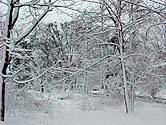
TUESDAY, Nov. 6 (HealthDay News) — Heart-related deaths increase across the United States in winter, even in areas with warmer climates, a new study found.
Researchers analyzed data on deaths between 2005 and 2008 in seven locations with different climates: Arizona, Georgia, Massachusetts, Pennsylvania, Texas, Washington and Los Angeles County, Calif.
In all seven areas, the total number of deaths and heart-related deaths — caused by heart attack, heart failure, cardiovascular disease and stroke — averaged 26 percent to 36 percent higher in winter than in summer.
The seasonal patterns of total and heart-related deaths were similar in the seven different climate areas, according to the researchers at Good Samaritan Hospital in Los Angeles.
The study was to be presented Tuesday at the American Heart Association annual meeting in Los Angeles.
The researchers didn’t look at the specific reasons why heart-related deaths rise in the winter. It may be that colder weather increases blood vessel constriction and raises blood pressure, suggested lead author Dr. Bryan Schwartz, now a cardiology fellow at the University of New Mexico in Albuquerque.
“In addition, people generally don’t live as healthy in winter as they do in summer,” Schwartz said in a heart association news release. “They don’t eat as well and don’t exercise as much.”
He added that “people should be extra aware that maintaining healthy behaviors is important in winter.”
Because this study was presented at a medical meeting, the data and conclusions should be viewed as preliminary until published in a peer-reviewed journal. And though the researchers found an association between colder seasons and an increase in heart-related deaths, they did not prove a cause-and-effect link.
More information
The U.S. National Institutes of Health outlines how you can reduce your heart risks.

